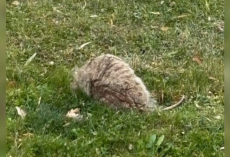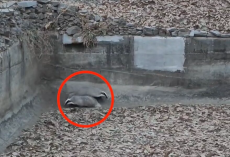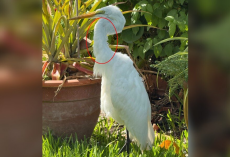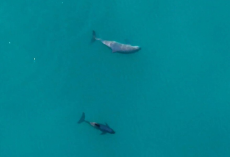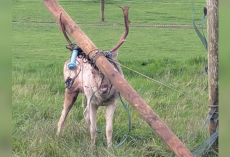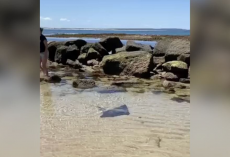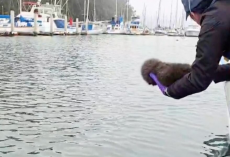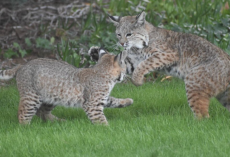Liz Belanger and her family were enjoying a peaceful day tubing down the Cowichan River in Canada when a tiny, unusual sound caught their attention.
“My 16-year-old son, Connor, floated through the rapids shortly after me and heard the same cries,” Belanger told The Dodo. “He saw a baby beaver struggling in the water.”
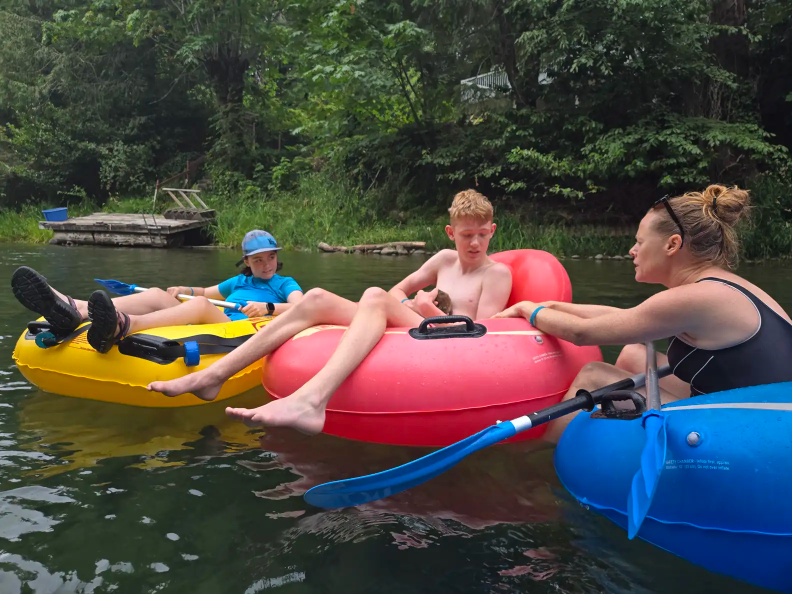
Without hesitation, Connor reached into the river. The little beaver grabbed his hand, and he carefully pulled her to his chest. Snuggled against him, she closed her eyes, trusting him completely. The family was amazed at how quickly this fragile creature sought their help.
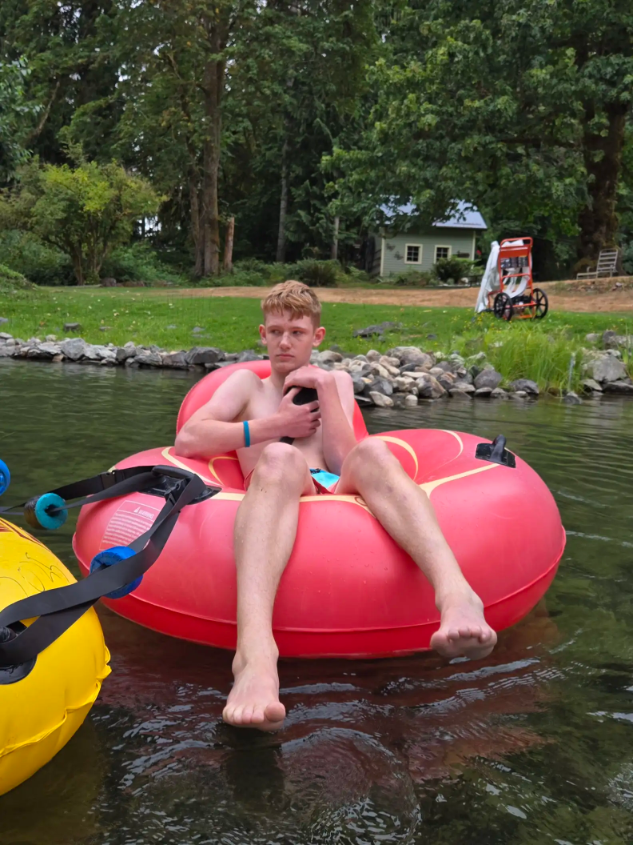
Connor was determined to protect his new friend. “He wouldn’t let me hold her for the first hour,” Liz said, wanting to ensure the baby was safe in his arms. After about four hours, they were able to transfer the tiny beaver into the care of the North Island Wildlife Recovery Association (NIWRA).
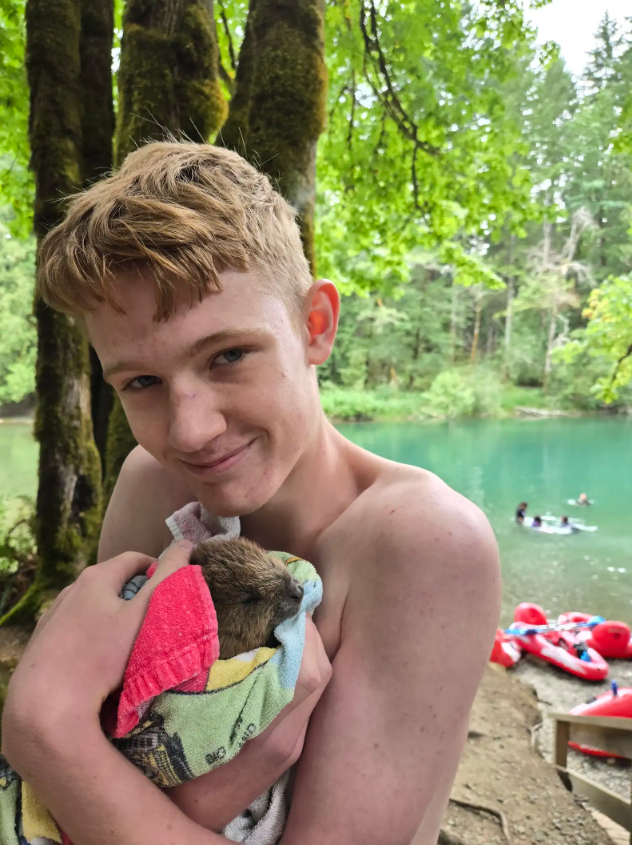
Over those hours, the baby — later named Timber — stayed calm and snuggled against her rescuers. “She even made little nursing motions and sounds while cuddled in my lap as I drove her to the center,” Liz said. “She was absolutely the most adorable little creature ever!”

When Timber arrived at NIWRA, it was clear the Belangers’ quick action had saved her life.
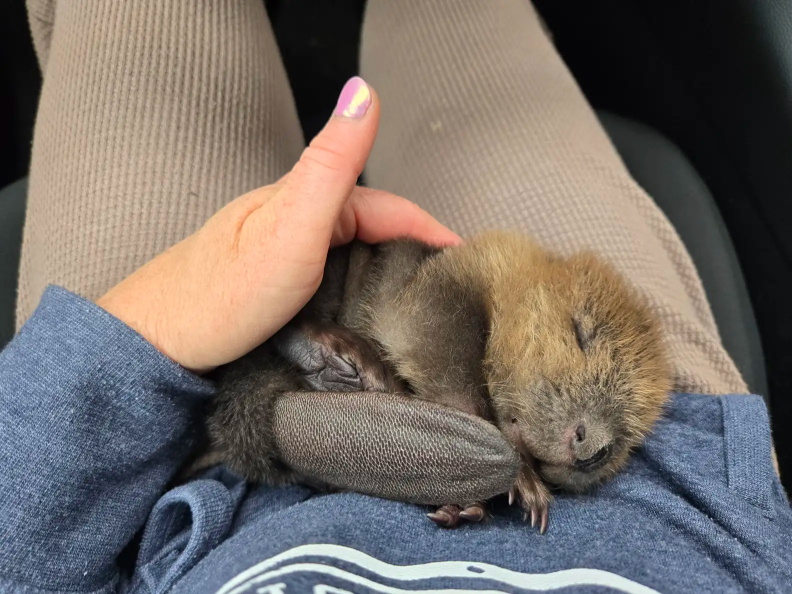
“She was cold, dehydrated, and completely exhausted,” Joanna Smith from NIWRA explained. “At just a week old, she would have been entirely dependent on her mother. Survival in the wild without intervention would have been highly unlikely.”
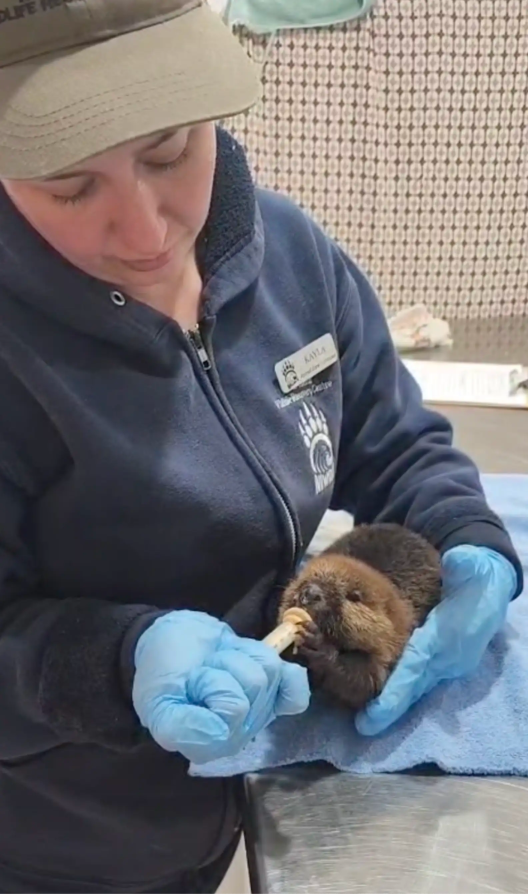
Now, Timber is thriving under the care of wildlife experts. “She’s incredibly determined, confident, and curious,” Smith said. “Even at such a young age, she has a strong presence and a clear will to survive.”
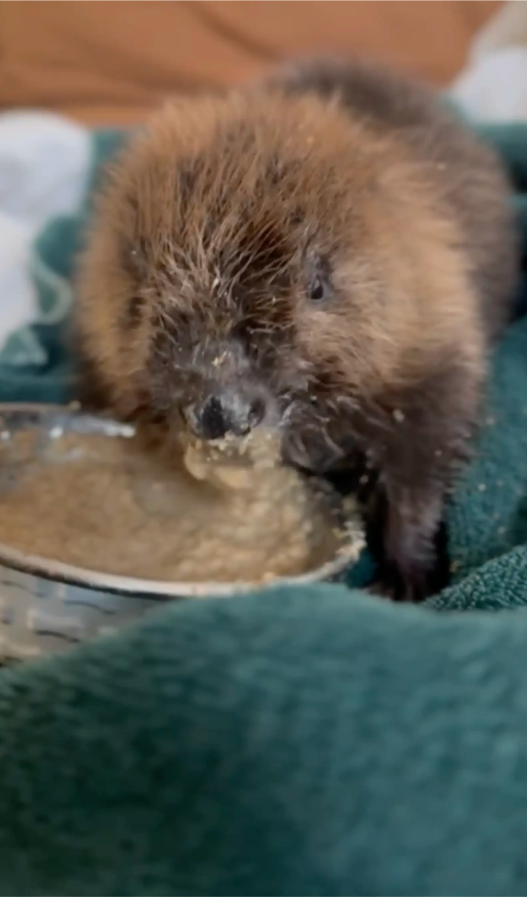
Baby beavers usually stay with their mothers for over a year, so Timber will remain with her rescuers for a while, learning the skills she needs to live independently. When she’s ready, she’ll be released back into the wild, likely near the spot where the Belanger family found her.
To support Timber and other wildlife in need, you can donate to the North Island Wildlife Recovery Association (NIWRA).


